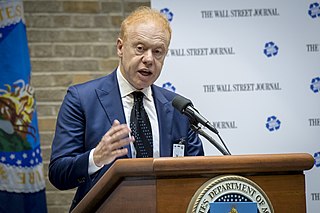A Quote by Deng Xiaoping
Reform is China's second revolution.
Quote Topics
Related Quotes
It is one of the ironies of this strange century that the most lasting results of the October revolution, whose object was the global overthrow of capitalism, was to save its antagonist, both in war and in peace - that is to say, by providing it with the incentive, fear, to reform itself after the Second World War, and, by establishing the popularity of economic planning, furnishing it with some of the procedures for its reform
After the countrywide victory of the Chinese revolution and the solution of the land problem, two basic contradictions will still exist in China. The first is internal, that is, the contradiction between the working class and the bourgeoisie. The second is external, which is the contradiction between China and the imperialist countries. Consequently, after the victory of the people's democratic revolution, the state power of the people's republic under the leadership of the working class must not be weakened but must be strengthened.
What is applicable is to understand that first of all China has undergone a huge revolution in the last years. Anyone who saw China as I did in 1971 - and for that matter even in 1979, because not much had changed between 1971 and 1979 - and sees China today, knows one is in a different economic system.
The Bush administration continues to coddle China, despite its continuing crackdown on democratic reform, its brutal subjugation of Tibet, its irresponsible export of nuclear and missile technology... Such forbearance on our part might have made sense during the Cold War when China was the counterweight to Soviet power. It makes no sense to play the China card now when our opponents have thrown in their hand.






































